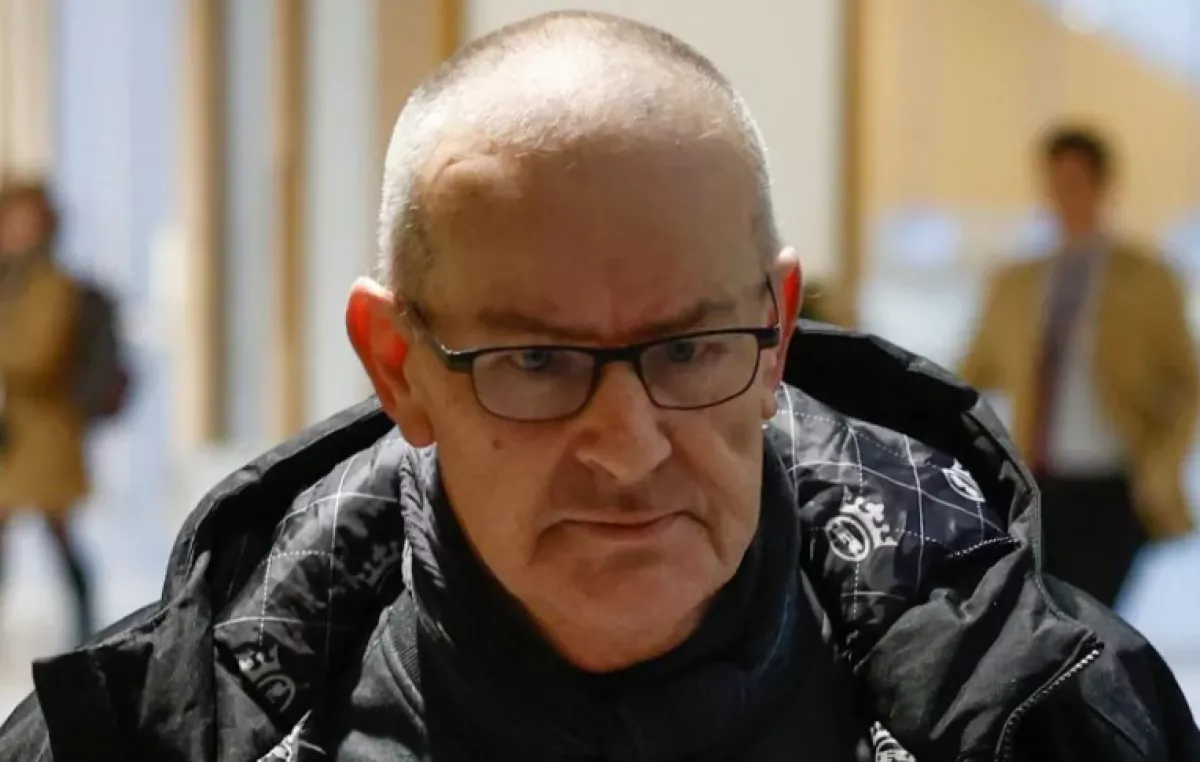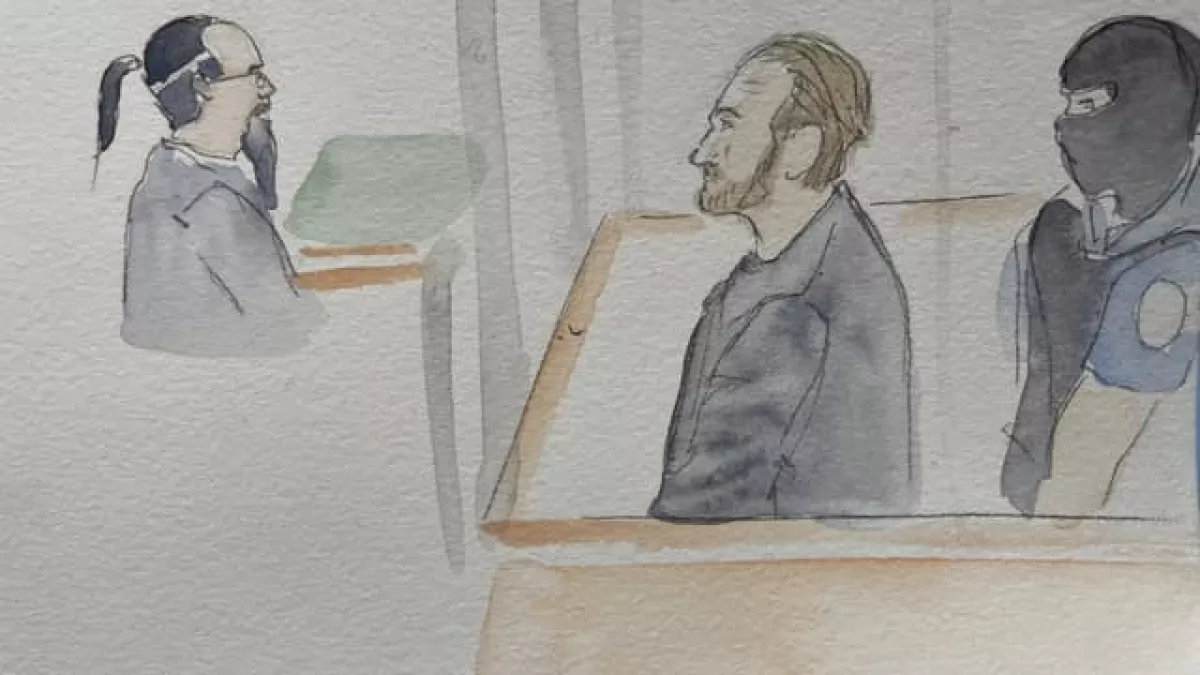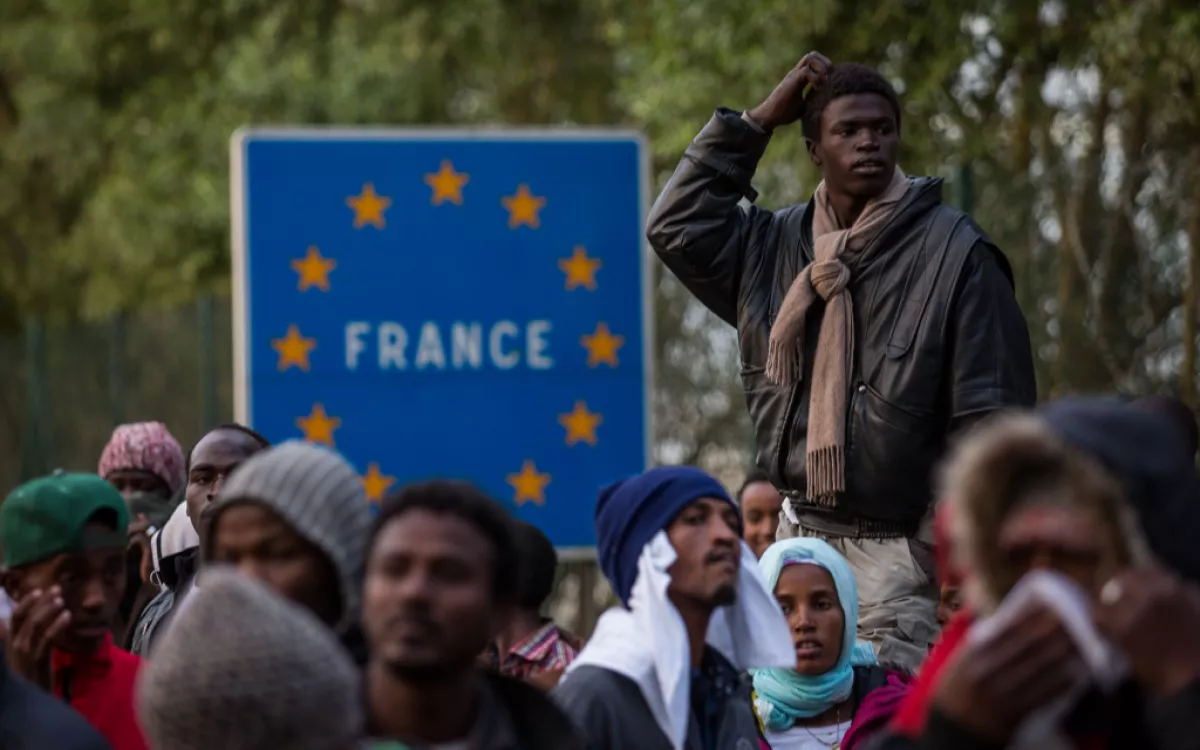France in embrace of racism and xenophobia Criminals in the name of patriotism
Ultra-right terrorists in France, who planned mass killings of migrants and Muslims, are seeking justification for their actions. Despite the abundance of official politically correct rhetoric, the problem of racism and xenophobia in the Fifth Republic has not disappeared.
The Identity Gang
On October 7, the appeal process began for the case of the far-right organization Les Barjols, whose three previously convicted members are seeking a review of their sentences.
Who are these Les Barjols? It is noteworthy that Barjols was the term used for soldiers from the French Foreign Legion in Mali during Operation Barkhane. It all started, as is often the case nowadays, with an innocuous social media account. The group with this name was founded on Facebook by elderly unemployed man Denis Collinet, a day after Emmanuel Macron's first election as president in 2017.
Collin was an activist of the ultra-right National Front back when Jean-Marie Le Pen was its leader, who poorly concealed his sympathies for the "Third Reich." Denis Collinet continued to support this far-right party even after it was renamed the "National Rally." After Marine Le Pen's defeat in the 2017 elections, Collinet stated in an interview in November 2018: "I realized that politics is crap; now people must take action."
Now, Collin decided to take to the streets all the dissatisfied, aiming to overthrow the government by mixing far-right slogans with social demands. Moreover, Deni Collin was one of the leaders of the Yellow Vests movement in Moselle. This non-partisan protest movement attracted both right- and left-wing radicals, each trying to push their own agenda.
Far-right ideas in modern France have found a receptive audience, and within a year, Collin's Facebook group had 4,770 followers. On-the-ground Barjols groups also emerged in several departments across the country. Denis Collinet's right-hand man became another elderly figure, Jean-Pierre Bouyer.

In the past, Bouyer was a supporter of De Gaulle, but later became an adherent of the far-right organization Action Française, which collaborated with the Nazis during World War II. Both Collinet and Bouyer were also part of another far-right extremist group that was banned in 2017.
The fertile ground for the Barjols, as well as for other right-wing populists, consisted of various "survivalists," enthusiasts of old bunkers and forts, self-defense, firearms, and various paramilitary training exercises.
On social media, the Barjols actively promoted hatred toward Muslims and migrants, the conspiracy theory of the Great Replacement (even Marine Le Pen is embarrassed to speak about it openly), the inevitability of an imminent civil and racial war in France, and the need to prepare for it. This is what the core members of the Barjols were trying to do—setting up shooting and survival training at an old factory near Nice, along with urban warfare drills. However, witnesses claim that much of this was often accompanied by drunkenness. The group’s slogan became: "Action is the solution!" Their page also didn’t shy away from social demagoguery, criticizing abstract "elites," Freemasons, EU directives, and so on.
Like many other modern far-right radicals, the Barjols also occasionally resorted to politically correct camouflage. They called themselves an "identity group," "patriots," and representatives of the "indigenous people."
Then, it seems, the group's leaders began to differ in their opinions on the next steps. According to Denis Collinet himself, he planned a sort of "revolution" for November 17, 2018, in the form of mass civil disobedience. However, his associate Jean-Pierre Bouyer appeared to choose a different path...
Armed marginals
On November 6, 2018, in Moselle, Ille-et-Vilaine, and Isère, police arrested six members of the Barjols group, including Jean-Pierre Bouyer. During the arrest, rifles, pistols, ammunition, cold weapons, and radios were seized from Bouyer's car and house. It was reported that the group was planning an assassination attempt on Macron during his trip to eastern France for the 100th anniversary of the end of World War I. According to the official version, while conducting surveillance on the far-right, the General Directorate for Internal Security (DGSI) obtained information that Bouyer was planning to attack the president with a ceramic knife, which metal detectors do not detect. Bouyer's phone was wiretapped, and on November 3, political police intercepted a conversation between him and Françoise P., discussing certain planned killings in eastern France.
Most of those arrested in this case were unemployed. A former dishwasher at McDonald's, 23-year-old Antoine D., suffers from DiGeorge syndrome and, apparently, cognitive impairment. He was waiting for disability benefits, spending his days in complete darkness playing video games. Mickaël Iber, a former fishmonger at a supermarket, was also living on benefits, as was 50-year-old David Gasparrini, a former Renault worker who was taking care of his disabled daughter. Only 62-year-old mechanic Bouyer, who had returned from Gabon, was still working in the logging industry. Initially, all the detainees fiercely denied any intent to commit a terrorist attack, but one by one they began to testify. It was established that on November 5, a meeting took place at Gasparrini's house, where the assassination of the president was discussed. However, the investigation revealed that Macron was not the far-right group's only target.
The suspects confessed that they had also planned robberies of tax offices or insurance companies, as well as the kidnapping of wealthy individuals to obtain money for purchasing weapons. Afterward, the Barjols group intended to begin attacks on migrants and bombings of mosques. The ultimate goal was to carry out a coup d'état, although the specifics of such a coup were rather vague even to the extremists themselves. However, during searches of the suspects' computers, a plan was found that included strategic sites, such as gendarmerie and army bases, hypermarkets, and a "Provisional Constitution."
Soon, the number of accused grew to 13 people, including the founder of the Barjols, Denis Collinet. They were all charged with creating a criminal terrorist organization, and some were additionally charged with illegal possession of weapons.

In February 2023, a trial took place, during which Jean-Pierre Bouyer was sentenced to four years in prison (with one year suspended), Mickaël Iber received four years (two of them suspended), and David Gasparrini was sentenced to three years (two of them suspended).
Jonathan Drexler, in turn, was sentenced to six months in prison for possession and transfer of weapons. This punishment was lighter than what the prosecution had requested. After the trial, all the convicted individuals remained free, as they had already served their sentences. All other defendants were acquitted. The charges were dropped on the grounds of insufficient evidence proving that the suspects could have carried out their terrorist plans.
"Patriotic" terror
Just a few days ago, the appeals process for the Barjols case began. Three of those convicted decided to appeal their sentences. Their lawyers argue that those convicted for terrorist plans should be considered merely "angry patriots." However, 11 people in total will appear before the court. This is because France's anti-terrorism court has also protested the acquittal of nine other members of the group. Both the defense and some media are attempting to portray the Barjols case as being exaggerated in order to discredit the far-right political movement.
The Barjols might currently seem like unsuccessful, eccentric fringe figures. But the country has already been shaken by nationalist terrorism in the 1960s and 1970s, when militants from the far-right "Organisation de l'Armée Secrète" (OAS), whose core members were veterans of the colonial war in Algeria and similar figures, killed around 2,000 people. In 2016, French far-right radicals resurrected the OAS, repurposing its acronym as the "Organization of the Social Army." The new OAS attempted to launder money for purchasing weapons through the France Village organization, which was involved in building a "nationalist eco-village" and a "white urban commune."

Far-right radicals also formed another group – "Action des Forces Opérationnelles" (AFO). According to French intelligence, the organization's internal network was divided into "white" (open militant propaganda), "gray" (logistics and training), and "black" (combat) zones. The leader of AFO, a retired police officer nicknamed "Richelieu," was also reportedly connected to Masonic lodges. Both organizations conducted paramilitary training for their members and planned a large-scale terror campaign against Muslims, including mosque bombings to provoke reverse migration. They also intended to assassinate 200 "radical imams," poison halal food in supermarkets, and throw grenades at Muslims praying on the streets.
Plans were even made for attacks on "accomplices" of migrants, such as left-wing politician Jean-Luc Mélenchon. Fortunately, both of these organizations were banned before they could carry out any of their plans.
However, xenophobia in France continues to escalate. In 2023, there were 828 incidents of Islamophobia, a 57% increase compared to 527 in 2022. Among these, there were 23 violent attacks.
Nonetheless, the main danger today does not come from marginal extremist groups. There is an unprecedented rise to power of extreme nationalist forces in France, leading to a kind of radicalization of the current political regime of the Fifth Republic. And, as if to compensate for the internal failures of his policies and the growing popularity of right-wing populists, President Macron is increasingly showing a willingness to engage in adventures on the external front, intervening in the affairs of independent states thousands of kilometers away from Paris...
P.S. Operation Barkhane was terminated in 2022, and the Barjols Legionnaires, a name adopted by the right-wing extremists, were withdrawn at the request of Mali's new progressive military transitional regime.








